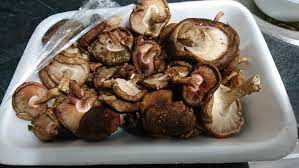Organic farming is a method of crop and livestock production that involves the use of natural processes and materials, such as compost and manure, to enhance soil fertility and promote sustainable agriculture. It is a growing trend in the agricultural industry, as it is seen as a more sustainable and environmentally friendly alternative to traditional farming practices. However, one of the challenges of organic farming is increasing the yield of crops and livestock. This article will explore the various strategies and techniques that can be used to maximize the yield of organic farming.
Table of Contents
Maximizing Yields in Organic Farming: Strategies for Success
Organic farming yields can be increased through a variety of strategies. One of the most important is to ensure that the soil is well-nourished and healthy. This can be done by using compost and manure to add nutrients to the soil and by using cover crops to protect the soil from erosion and improve its fertility. Additionally, crop rotation and intercropping can be used to increase the diversity of crops and reduce the risk of pests and diseases. Finally, proper irrigation and pest management techniques can also help to maximize yields in organic farming.
Boosting Yields in Organic Farming: Tips and Techniques
Organic farming yields can also be increased by using certain techniques and tips. For example, selecting the right varieties of crops for the local climate and soil conditions can help to maximize yields. Additionally, using mulch and other organic materials to protect the soil from erosion and conserve moisture can also help to increase yields. Finally, using companion planting and other techniques to attract beneficial insects and birds can help to reduce the need for chemical pesticides and fertilizers, thus increasing yields.
What are some ways to increase yield in organic farming?
Organic farming is a great way to produce healthy, sustainable food without the use of synthetic chemicals, but it can also be challenging to maximize yield. Here are some tips to help increase yield in organic farming:
1. Use cover crops: Planting cover crops between harvests can help increase soil fertility and reduce erosion.
2. Practice crop rotation: Rotating crops helps to maintain soil fertility and reduce the risk of pests and diseases.
3. Improve soil health: Healthy soil is essential for successful organic farming. Use organic fertilizers and compost to improve soil fertility and structure.
4. Use beneficial insects: Introducing beneficial insects such as ladybugs and lacewings can help control pests and reduce the need for chemical pesticides.
5. Utilize mulching: Mulching can help conserve moisture and reduce weeds, which can lead to higher yields.
By following these tips, you can increase yield in organic farming and produce healthy, sustainable food.
What are some of the benefits of organic farming?
Organic farming offers numerous benefits to both the environment and consumers. For the environment, organic farming reduces the amount of synthetic pesticides and fertilizers used, which can lead to improved soil health and water quality. Additionally, organic farming practices can help to reduce greenhouse gas emissions, as they often involve less energy-intensive methods of production.
For consumers, organic farming can provide a variety of health benefits. Organic produce is free from synthetic pesticides and fertilizers, which can be harmful to human health. Additionally, organic produce is often higher in essential vitamins and minerals, providing a more nutrient-dense option for consumers. Finally, organic farming can help to support local farmers and their communities, as organic produce is often sourced from local farms.
What are some of the challenges of organic farming?
Organic farming presents a number of challenges to farmers. The most significant of these include the lack of access to synthetic pesticides and fertilizers, the need to manage weeds and pests without the use of chemical treatments, and the difficulty of maintaining soil fertility without the use of synthetic fertilizers. Additionally, organic farmers must adhere to strict regulations and standards in order to maintain their organic certification, which can be time-consuming and costly. Finally, organic farmers must often compete with conventional farmers who have access to more affordable inputs, making it difficult to remain competitive in the market.
How to Increase Yields in Organic Farming for Maximum Profit
Organic farming can be a profitable venture for farmers, but it requires careful management and planning to maximize yields. To increase yields, farmers should focus on soil health and fertility, pest and weed management, and crop rotation. Additionally, introducing beneficial insects and utilizing mulching can help to reduce the need for chemical pesticides and fertilizers, leading to higher yields. By following these tips, farmers can increase yields in organic farming and produce healthy, sustainable food.
Understanding the Yield Gap
Organic farming can be a profitable venture, but it often falls short of conventional farming yields. This is known as the yield gap, and it can be caused by a variety of factors, such as soil fertility, pest and weed management, and crop rotation. To close the yield gap, farmers should focus on improving soil health and fertility, managing pests and weeds without the use of synthetic chemicals, and rotating crops to maintain soil fertility. By understanding and addressing the yield gap, organic farmers can increase yields and profitability.
Improving Profitability Of Organic Farming
Organic farming can be a profitable venture, but it requires careful management and planning to maximize yields and profitability. To increase profitability, farmers should focus on soil health and fertility, pest and weed management, and crop rotation. Additionally, introducing beneficial insects and utilizing mulching can help to reduce the need for chemical pesticides and fertilizers, leading to higher yields and increased profitability. By following these tips, farmers can increase yields in organic farming and produce healthy, sustainable food while improving their profitability.
Reducing Costs Of Organic Farming
Organic farming can be a profitable venture, but it often requires more labor and inputs than conventional farming. To reduce costs, farmers should focus on utilizing natural resources such as compost and mulch, as well as utilizing cover crops to reduce the need for chemical fertilizers and pesticides. Additionally, utilizing drought-tolerant crops and water-conserving irrigation methods can help to reduce water costs and increase yields during times of drought. By reducing costs, organic farmers can increase their profitability and sustainability.
Increasing Revenue Of Organic Farming
Organic farming can be a profitable venture, but it requires careful management and planning to maximize yields and revenue. To increase revenue, farmers should focus on marketing their products, utilizing direct-to-consumer sales, and diversifying their crops. Additionally, introducing value-added products such as jams, jellies, and pickles can help to increase revenue. By focusing on marketing and diversifying their crops, organic farmers can increase their revenue and profitability.
Managing Drought In Organic Farming
Organic farming can be a profitable venture, but it is particularly vulnerable to drought. To manage drought, farmers should focus on utilizing drought-tolerant crops and water-conserving irrigation methods. Additionally, introducing cover crops and mulching can help to reduce water loss and increase soil moisture retention. By managing drought, organic farmers can increase yields and profitability, even during times of drought.
A. Drought-Resistant Crops
Organic farmers can increase yields and profitability by utilizing drought-resistant crops. Drought-resistant crops are able to withstand long periods of dry weather and require less water than other crops. Additionally, these crops are often more resilient to pests and diseases, leading to higher yields and increased profitability. By utilizing drought-resistant crops, organic farmers can increase yields and profitability even during times of drought.
B. Crop Rotation
Crop rotation is an important tool for organic farmers to increase yields and profitability. By rotating crops, farmers can reduce the risk of pests and diseases, as well as improve soil fertility and structure. Additionally, crop rotation can help to reduce the need for chemical fertilizers and pesticides, leading to higher yields and increased profitability. By utilizing crop rotation, organic farmers can increase yields and profitability while producing healthy, sustainable food.
Water Conservation Strategies In Organic Farming
Organic farmers can increase yields and profitability by utilizing water-conservation strategies. By utilizing water-conserving irrigation methods such as drip irrigation and mulching, farmers can reduce water loss and increase soil moisture retention. Additionally, introducing cover crops can help to reduce water loss and increase soil fertility. By utilizing water-conservation strategies, organic farmers can increase yields and profitability while reducing water usage.
Benefits of Increased Yields
Organic farming can be a profitable venture, and increased yields can lead to even greater profitability. Higher yields can lead to increased profits, as farmers can produce more food with fewer resources. Additionally, increased yields can lead to greater food security, as farmers can produce more food to meet the needs of their communities. By increasing yields, organic farmers can increase profitability and contribute to greater food security.




